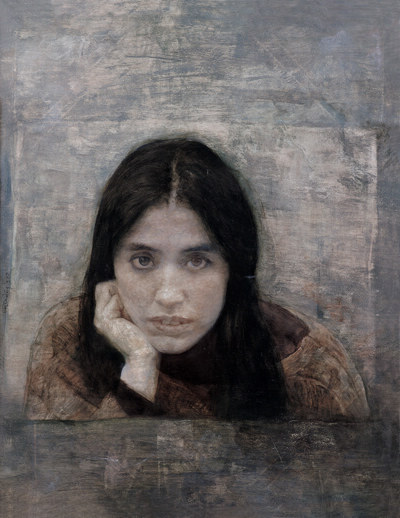|
 |
|
A Portrait of Zhai Yongming by famous painter He Duoling (FILE) |
Passion for poetry heated the art museum of the China Central Academy of Fine Arts on a cold winter night. Famous poets, old and young, as well as art lovers gathered from across China in the museum in Beijing on December 28, 2011. They recited their favorite poems, and shared their most subtle feelings of life and society.
Of them, poetess Zhai Yongming drew the most applause. "For me, poetry plays the role of religion. It brings me the most joy," said Zhai. "There are various changes in life that one can't control. The only thing I can control is writing poetry. Through writing poems, I express my ideas and prove my existence. That's why I say poems have never let me down."
Born in Chengdu, capital of southwest China's Sichuan Province in 1955, Zhai is renowned as the most outstanding modern poetess in China. So far, her poems have been translated into a number of languages including English, German, Japanese and Dutch.
Feminism
In the eyes of her fellow Chinese poets, Zhai is really special. As a talented and beautiful woman, Zhai smokes, drinks, travels a lot, loves pretty dresses, and advocates feminism.
She once said she wished to be a poet rather than a poetess, but in her life she was first and foremost a woman. "I am more interested in expanding the most simple and subtle feelings in my heart, or femininity in other words. Some kind of bigotry makes me over-concerned with the inner world," said Zhai.
Indeed, feminism has been a prominent feature of Zhai's poems since she gained fame.
She made her debut with the poetry cycle in 1986 when she published her first poetry sequence Women, which consisted of 20 poems. Women shocked the Chinese literature circle with its uniquely weird language style and overwhelming female perspective. It triggered the "Black Tornado" of women's poetry that swept China from 1986 to 1989.
Women is an excellent example of Chinese feminist poetry. In the preface, she wrote, "As one of the two genders of human beings, women face a totally different world from men from birth. Their single glance of the world bears unique emotions and instincts…"
According to traditional Chinese culture, the feminine is characterized by water, flower, and moonlight. All these images are vividly displayed in Zhai's works, like the description of the moon in one poem from Women, translated by Simon Patton:
The moon is like a clean, fragrant body
Sound asleep,
it gives off a seductive smell
A night is pressed on either side by two days
Between them all,
the dark circles around your eyes
Stay joyful
Her other poetry collections include Above All the Roses (1989), Collected Poems of Zhai Yongming (1994), Plain Songs in the Dark Night (1997) and Fourteen Plain Songs (2011).
| 